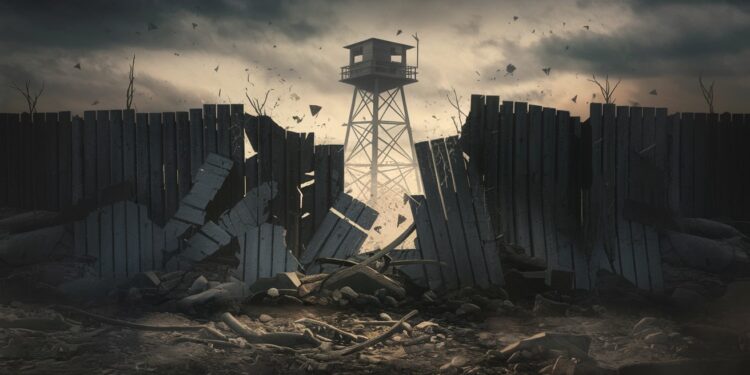As the devastating war between Israel and Gaza stretches on, a question looms large: What will become of Gaza once the guns fall silent? Israel’s hawkish defence minister, Israel Katz, has a clear vision – one that spells continued hardship for the beleaguered Palestinian enclave.
Israel Vows ‘Full Freedom of Action’ in Post-War Gaza
In a recent post on social media platform X, formerly known as Twitter, Katz declared that Israel will maintain “security control” over Gaza even after the war concludes. More than just a temporary measure, he envisions a status quo akin to Israel’s tight grip on the occupied West Bank.
After we defeat Hamas’ military and governmental power in Gaza, Israel will have security control over Gaza with full freedom of action, just as it did in Judea and Samaria.
We will not allow any terrorist organization against Israeli communities and Israeli citizens from Gaza. We will not allow a return to the reality of before October 7th.
– Israel Katz, Israel’s Defence Minister
The reference to October 7th alludes to the Hamas-led attack on that date last year, which claimed around 1,200 lives and saw 250 people taken hostage. It was this assault that sparked the current war, the resolution of which remains elusive a year later.
Dissenting Voices Within Israel’s Leadership
Katz’s hardline stance puts him at odds with his predecessor, Yoav Gallant, who was dismissed from his post last November. Gallant had opposed any extended Israeli control over Gaza, arguing that Israel must not exert civilian control over the territory from which it withdrew soldiers and settlers in 2005 after decades of direct rule.
Israel must not have civilian control over the Gaza Strip.
– Yoav Gallant, Former Israel Defence Minister, May 2024
The divergent views within Israel’s top brass underscore the thorny question of Gaza’s future governance, an issue that remains unresolved as the war grinds on with no end in sight.
Seismic Shifts in Syria as Rebels Take the Reins
Meanwhile, in neighboring Syria, the downfall of President Bashar al-Assad has ushered in a new era of uncertainty. Rebel factions, long locked in a struggle against Assad’s regime, are now scrambling to cobble together a transitional government.
The head of a UN investigative body has reached out to Syria’s new authorities, signaling a willingness to engage and even travel to Syria to gather evidence that could implicate former top officials.
There is now the possibility of accessing evidence of the highest level of (the) regime.
– Head of the International, Impartial and Independent Mechanism, a UN investigative body
The overture comes on the heels of a grim discovery – a mass grave outside Damascus containing the remains of an estimated 100,000 people allegedly killed by Assad’s government, according to a US-based Syrian advocacy group.
Cautious Engagement from the International Community
As Syria’s political landscape shifts, Western powers are gingerly exploring diplomatic channels with the ascendant rebel leadership. German diplomats are set to hold inaugural talks with representatives of Hayat Tahrir al-Sham (HTS), the Islamist group that played a key role in toppling Assad, focusing on Syria’s political transition and safeguarding minority rights.
Italy, too, has signaled a readiness to engage with Syria’s new leaders, albeit with a measure of caution. Prime Minister Giorgia Meloni stressed the need for prudence in dealing with the unfolding situation.
Across the Atlantic, US President-elect Donald Trump has characterized Assad’s ouster as an “unfriendly takeover” orchestrated by Turkey, acknowledging the neighboring country’s historical support for the Syrian opposition.
I think Turkey is very smart… Turkey did an unfriendly takeover, without a lot of lives being lost. I can say that Assad was a butcher, what he did to children.
– Donald Trump, US President-elect
The Road Ahead for War-Torn Nations
As the dust begins to settle on these seismic shifts, the path forward for both Gaza and Syria remains shrouded in uncertainty. Will Israel’s iron grip on Gaza truly bring lasting security, or sow the seeds of future conflict? Can Syria’s motley assortment of rebel factions forge a stable, inclusive government from the ashes of war?
Only time will tell, but one thing is clear: the scars of war will linger long after the fighting ends, shaping the lives of millions in these shattered lands for years to come. As the world watches and waits, the hope is that wisdom and compassion will light the way to a brighter, more peaceful future.








